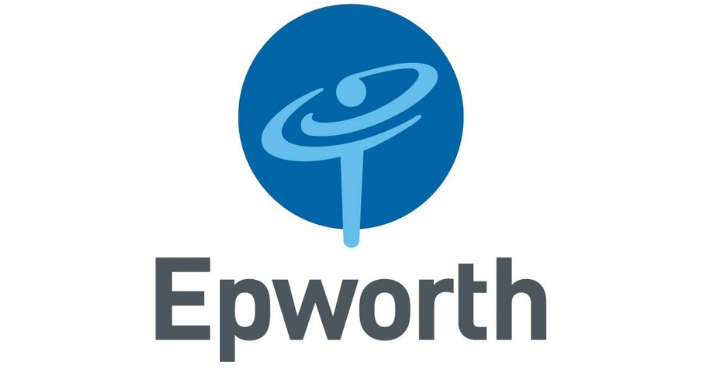Medications
Medications for BPH
Medications for Benign Prostatic Hyperplasia (BPH) are typically prescribed to alleviate symptoms associated with prostate gland enlargement. These medications can help improve urinary flow, reduce urinary frequency and urgency, and decrease prostate gland size.
Who is Suitable for BPH Medications?
Only some people with BPH may be suitable for medication treatment. Factors that doctors consider when determining suitability include:
- Symptom Severity: Medications are typically prescribed for men with moderate to severe BPH symptoms, such as frequent urination, urinary urgency, weak urine flow, and incomplete bladder emptying.
- Prostate Size: The size of the prostate gland may influence treatment decisions. Medications may be more effective for men with moderately enlarged prostates, while those with very large prostates may require alternative treatments such as surgery.
- Overall Health: Due to potential drug interactions or contraindications, individuals with certain medical conditions or taking specific medications may not be suitable candidates for BPH medications.
- Preference and Lifestyle: Some individuals may prefer medication treatment over surgical options due to factors such as convenience, cost, and potential side effects. Lifestyle factors like willingness to adhere to medication regimens may also influence suitability.
- Response to Previous Treatments: doctors may consider whether the individual has tried other treatments for BPH, such as lifestyle modifications or herbal remedies, and their effectiveness before prescribing medications.
- Risk of Complications: Medications may not be suitable for individuals at high risk of complications from BPH, such as acute urinary retention or recurrent urinary tract infections.
Benefits of Medications for BPH
- Symptom Improvement: Medications can help alleviate bothersome symptoms associated with BPH, such as urinary frequency, urgency, weak urine flow, and nocturia (waking up at night to urinate).
- Quality of Life: Medication can improve the quality of life for men with BPH by reducing urinary symptoms, allowing them to engage in daily activities without disruption or discomfort.
- Avoidance of Surgery: For some men, medications may delay or eliminate the need for surgical interventions to treat BPH, such as transurethral resection of the prostate (TURP) or laser prostate surgery.
- Minimal Invasiveness: Medications are generally administered orally, making them a less invasive treatment option than surgical procedures.
- Combination Therapy Benefits: Some individuals may experience enhanced symptom relief by combining different medications for BPH, such as alpha-blockers and 5-alpha reductase inhibitors (5-ARIs).
Types of Medications for BPH
Alpha-Blockers
Alpha-blockers relax the muscles in the prostate and bladder neck, making it easier to urinate. They are often prescribed as the first line of treatment for BPH. Commonly prescribed alpha-blockers include:
- Tamsulosin (Flomax)
- Alfuzosin (Uroxatral)
- Silodosin (Urorec)
- Doxazosin (Cardura)
- Terazosin (Hytrin)
These medications can cause side effects such as dizziness, fatigue, and retrograde ejaculation (ejaculation into the bladder instead of out of the penis).
5-Alpha Reductase Inhibitors (5-ARIs)
5-ARIs work by reducing the production of dihydrotestosterone (DHT), a hormone that contributes to prostate growth. These medications may help shrink the prostate gland and improve urinary symptoms. Commonly prescribed 5-ARIs include:
- Finasteride (Proscar)
- Dutasteride (Avodart)
Side effects of 5-ARIs may include decreased libido, erectile dysfunction, and breast tenderness or enlargement.
Combination Therapy
Some patients may benefit from taking alpha-blockers and 5-ARIs together, known as combination therapy. This approach can provide more comprehensive symptom relief by targeting different aspects of BPH.
Phosphodiesterase-5 Inhibitors (PDE5 Inhibitors)
While primarily used to treat erectile dysfunction (ED), medications such as tadalafil (Cialis) have been shown to improve urinary symptoms in men with BPH. They work by relaxing the smooth muscles in the prostate and bladder. Tadalafil is sometimes prescribed off-label for BPH treatment.
Anticholinergic Medications
In some cases, BPH symptoms may be exacerbated by overactive bladder (OAB) symptoms, such as urinary urgency and frequency. Anticholinergic medications, such as oxybutynin (Ditropan) or solifenacin (Vesicare), can help alleviate these symptoms by relaxing the bladder muscles.
However, they are generally not considered first-line treatments for BPH and may have side effects such as dry mouth, constipation, and blurred vision.
Phytotherapy
Some herbal supplements, such as saw palmetto, pygeum africanum, and beta-sitosterol, have been used traditionally to manage BPH symptoms. While research on their efficacy is mixed, some men report symptom improvement with these supplements.
Discussing herbal remedies with a doctor is essential, as they may interact with other medications or have side effects.
Alternative Options to Medications for BPH
- Lifestyle Modifications:
- Limiting caffeine and alcohol intake.
- Avoiding fluids before bedtime.
- Practising pelvic floor exercises.
- Maintaining a healthy weight through diet and exercise.
- Minimally Invasive Procedures:
- Water Vapour Thermal Therapy (Rezum): Uses steam to treat excess prostate tissue.
- Prostatic Urethral Lift (UroLift): Implants lift and hold the enlarged prostate tissue away from the urethra, improving urine flow.
- Surgical Interventions:
- Transurethral Resection of the Prostate (TURP): Removes excess prostate tissue using a resectoscope inserted through the urethra.
- Laser Prostate Surgery: Various laser techniques are used to remove or vaporise excess prostate tissue.
- Open/Robotic Prostatectomy: Reserved for very large prostates, involves surgically removing the enlarged portion of the prostate.
- Active Monitoring: In cases where BPH symptoms are mild or do not significantly impact the quality of life, doctors may recommend monitoring the condition without immediate intervention.
Medications for BPH Prognosis
- Symptom Improvement: Medications for BPH can significantly improve urinary symptoms such as urinary frequency, urgency, weak urine flow, and nocturia (waking up at night to urinate). Many individuals experience relief within weeks to months of starting medication.
- Quality of Life: Medication can enhance the overall quality of life for men with BPH by reducing bothersome urinary symptoms. Improved urinary function can lead to better sleep, increased comfort during daily activities, and enhanced psychological well-being.
- Prevention of Complications: Effective management of BPH symptoms with medications can help prevent complications such as acute urinary retention (inability to urinate), urinary tract infections, bladder stones, and kidney damage.
- Long-Term Management: Medications can provide long-term management of BPH symptoms, allowing individuals to maintain their urinary health and avoid more invasive treatments such as surgery.
- Combination Therapy Benefits: Some individuals may achieve greater symptom relief and prostate size reduction by combining different types of medications for BPH, such as alpha-blockers and 5-alpha reductase inhibitors (5-ARIs).
Medications for BPH Risks
- Side Effects: Common side effects of medications for BPH include dizziness, fatigue, headache, decreased libido, erectile dysfunction, retrograde ejaculation (ejaculation into the bladder instead of out of the penis), and breast tenderness or enlargement (with 5-ARIs).
- Drug Interactions: Medications for BPH may interact with other medications that the individual is taking, potentially leading to adverse effects or reduced efficacy. Doctors must review the individual's medication list and adjust dosages or medications to minimise risks.
- Orthostatic Hypotension: Alpha-blockers can cause a sudden drop in blood pressure upon standing (orthostatic hypotension), leading to dizziness or fainting. This risk is higher in older adults or individuals taking medications for hypertension.
- Increased Risk of Falls: Dizziness and orthostatic hypotension associated with alpha-blockers can increase the risk of falls, particularly in older adults.
- Sexual Side Effects: Medications such as 5-ARIs and alpha-blockers can cause sexual side effects such as erectile dysfunction, decreased libido, and ejaculatory dysfunction, which may impact quality of life and sexual relationships.
What if Medications for BPH Are Delayed?
If medications are delayed, individuals may experience persistent or worsening urinary symptoms, leading to decreased quality of life and potentially increasing the risk of complications such as acute urinary retention or urinary tract infections. However, the impact of delayed medication use can vary depending on the severity of symptoms and individual factors.
In cases where medications are not initiated promptly, doctors may recommend alternative treatments such as lifestyle modifications, minimally invasive procedures, or surgical interventions to manage BPH symptoms and prevent complications.
Individuals experiencing BPH symptoms should consult with their doctor to determine the most appropriate treatment plan based on their specific needs and circumstances. Early intervention can help optimise symptom management and improve long-term outcomes.







